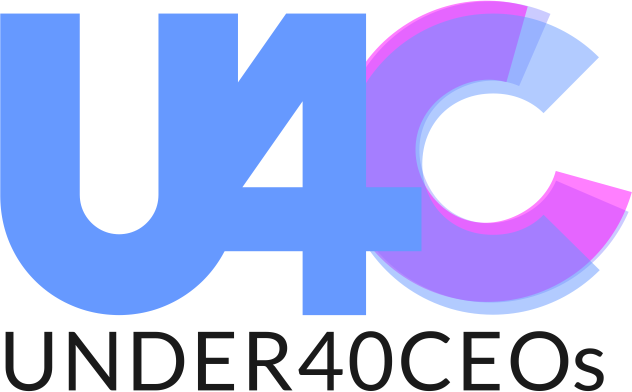Every crisis creates two things: problems and opportunities.
As the world fought COVID-19 and its devastating impacts on human life, the economy, businesses, and jobs, the world was too distracted by the problems to notice the growing opportunities around us — especially in an interesting market like Africa.
Surprisingly, last year, despite the pandemic effects still looming and the lockdowns and business shutdowns that came with it, tech startups across Africa still raised more than $4 billion from local and international investors.
Africa has significant growth potential. And that’s why you should pay close attention to the business opportunities on this list.
These are the biggest business opportunities in Africa that will probably define 2022 and the rest of the new decade.
These opportunities will inspire new business ideas, spark creativity and innovation, and create considerable wealth, growth, and jobs on the continent.
Some opportunities on this list are quite familiar. But some will probably shock you.
If you’re thinking of starting a business or diversifying into a new business this year, this detailed list of opportunities provides clear insights to guide your next moves.
The business opportunities you’re about to read are based on serious but unsolved problems, underserved and ignored needs, growing consumer demand, and shifts and changes in the market.
You are going to learn a lot from this.
Don’t forget to SHARE this list with your business friends.
They’re going to thank you for it.
Let’s meet the big market trends and business opportunities in Africa to watch in 2022 and beyond.
1. Challenger banks

After decades of dominance by traditional brick-and-mortar banks, young and creative entrepreneurs are using technology in clever ways to challenge and transform how financial services are delivered in Africa.
The biggest factors behind the rise of challenger banks and fintech in Africa are the continent’s youthful population, increasing internet and smartphone use, and a serious regulatory drive in many countries to increase financial inclusion and cashless payments.
And there’s a lot of investors’ money pouring into these challenger banks. In 2021 alone, fintechs received the lion’s share of the $4 billion invested in African tech startups. Interestingly, as the number of challenger banks and fintechs rises across Africa, new players in the space are differentiating themselves by focusing on underserved niches and market segments.
As we progress into this new decade, the evolution and growth of Africa’s challenger banks, both in terms of size and sophistication, will surely be a joy to watch.
2. Branded food products

With over a billion mouths to feed, food is one of the biggest business opportunities in Africa.
In fact, the UN estimates that agribusiness on the continent could be worth $1 trillion by 2030.
But there is something strange about how food is sold in many parts of Africa.
During the harvest season, most food products are abundant, fresh, and cheap. And the market glut and oversupply often lead to a lot of waste.
But on the shelves of many of the local supermarkets and international retailers in Africa’s urban areas, something very different is happening. There are lots of branded food products imported from other parts of the world — the USA, Europe, the Middle East, Asia, and South America.
And there lies the conundrum:
Why does a continent that produces large amounts of food still spend over $35 billion annually to import food that is in canned, bagged, bottled, and other packaged formats?
While there are a couple of reasons for this, one thing is clear: Africa’s agribusiness value chain is too focused on production. Our farmers just keep trying to grow more and more food.
As a result, opportunities to add value and increase profit margins through the processing, packaging, branding, and marketing of local foods are being ignored.
Therefore, most of Africa’s food products are sold as commodities. Our farmers produce tomatoes in abundance but we import and stock branded tomato paste, purees, and ketchup on supermarket shelves. We export grains and cocoa beans and then import branded breakfast cereals and chocolate.
Currently, while the continent has millions of farmers, there are only a handful of local companies in Africa that process, package, and brand food products that can compete with international brands on supermarket shelves.
Thankfully, this wide (and growing) gap in the market is attracting smart entrepreneurs.
With a population of over a billion people that is fast urbanizing and projected to double by 2050, the tastes and preferences of the African consumer are changing.
When it comes to food, people are paying more attention to quality, packaging, brand, nutritional value, shelf life, convenience, and availability.
And it is those entrepreneurs who can look beyond the production stage and add more value to locally produced food who will be the big winners in this decade.
3. Animations & Comics

In December 2020, Disney announced a first-of-its-kind co-production deal with Kugali Media.
Founded in 2017 by three young and talented comic book artists from Nigeria and Uganda, Kugali Media has become one of the largest entertainment companies on the continent that sells comic books, art, and augmented reality that’s inspired by African stories.
This is the first time in history that a Disney project set in Africa will be envisioned and told by African storytellers and animators.
According to MarketWatch, the global market for comic books is valued at just over $3.8 billion and is dominated by Japanese manga, and comics from the USA, Canada, and France.
However, for more than a decade, comic book sales have slowed down in North America and Europe. And this is exactly why Africa presents a major growth opportunity for the industry.
First, Africa currently has both the world’s youngest population and the fastest-growing population of young people.
With 60% of Africa’s population below the age of 25, the continent presents just the right youthful demographic and growth market for comic books and animated experiences.
Second, Africa has the world’s lowest representation in animations and comic books.
Dominated largely by Western storylines and superheroes like Superman, Batman, Wonder Woman, and the X-Men, Africa has a major opportunity to refresh the global appetite for comics by infusing new superheroes and exciting storylines that are inspired by Africa’s rich culture, heritage, and mythology.
As new technology and the internet make it easier for more African animators to expose their works to the world, comic book series and animation studios are springing up across the continent — there’s Comic Republic in Nigeria, Etan Comics in Ethiopia, and several others in Southern Africa.
There is no doubt that Disney’s landmark deal with Kugali Media will probably open more doors to more deals with African animators and creatives within this decade.
4. Urban logistics
More Africans are moving to cities and urban areas. The continent is currently the world’s fastest urbanizing region and up to 1 billion people could live in Africa’s urban areas by 2050.
By 2030, Africa will be home to 17 cities with over five million inhabitants, as well as 90 cities with at least one million people. And by 2050, the UN estimates there will be 14 megacities on the continent.
While big cities provide significant economic opportunities, they also present very serious logistical challenges when it comes to locating people, and delivering goods and services.
A prime example is the lack of a formal address system in many urban areas on the continent.
Without accurate and verified addresses, doing business can be very frustrating in some parts of Africa. E-commerce startups, banks, utility companies, and a range of local businesses face significant challenges in identity verification, delivering customer orders, and tracking location data.
Last-mile delivery of goods is another serious logistical nightmare.
As the population in Africa’s urban areas grows, it’s putting a major strain on the limited transport infrastructure, making it very difficult to move goods around.
These days, road traffic in most African big cities is hell — and it may only get worse!
The good news is, that across Africa, a growing number of startups are trying to solve the last-mile delivery problems in urban areas by combining technology with a network of agents with motorcycles, cars, and trucks.
More investor money is betting on African startups that provide solutions to urban logistics on the continent.
And that’s because they understand one important fact: as the populations in Africa’s urban areas continue to grow, the demand for fast, convenient, and flexible last-mile delivery services will surely be on the rise.
5. Cybersecurity & Data storage


Every year, African businesses lose more than $3.5 billion to hackers and cybersecurity breaches.
Cybersecurity is fast becoming one of the key emerging business opportunities in Africa because of the potential damages and losses that are at stake.
Individuals and organizations of all sizes are being targeted. The attacks range from simple email scams to large-scale theft of customer data, fraud, ransomware, espionage, critical infrastructure sabotage, and other malicious activities.
And more threats are emerging every day.
According to the Africa Centre for Strategic Studies, up to 96% of cybersecurity incidents in Africa go unreported or unresolved — this means that cyber threats on the continent are likely much worse than the official statistics.
Worse still, Africa doesn’t have enough specialists to defend itself from the growing threats. The continent currently has a gap of over 100,000 certified cybersecurity professionals.
Interestingly, a growing number of entrepreneurs on the continent are rising to the challenge.
The market for data storage services is also growing very fast in Africa.
In fact, it’s being called “the world’s next data gold rush.”
Industry experts project the size of Africa’s data center market could reach $3 billion by 2025, growing at a 12% compound rate. In the last five years, major global cloud service providers such as AWS, Microsoft, and Huawei have been making inroads into Africa.
The demand for local data storage capacity in Africa is rising in line with its rapid population growth, urbanization, smartphone use, and internet penetration.
As the continent goes digital, uses more data, and adopts cloud computing as well as co-location, local caching, and centralized networking capabilities, the demand for local data storage will continue to go through the roof.
6. Virtual education
The education system in most African countries is broken.
Now home to the world’s youngest population, Africa’s existing school infrastructure is just not enough to serve a population that is set to double to 2.2 billion over the next 30 years.
According to UNESCO, sub-Saharan Africa has the highest rates of education exclusion. It’s estimated the region has over 100 million out-of-school children.
The poor quality of education in most public schools has led to a surge in private schools on the continent. Still, demand outstrips supply and many families continue to struggle with the rising cost of school fees.
Virtual education is an innovation that leapfrogs the capacity limitations of Africa’s physical school infrastructure and provides a decentralized model of education that is both low-cost and good quality.
While there were already dozens of virtual education platforms and edtech startups across the continent before COVID-19, the lockdowns gave a big boost to their adoption.
And a lot of money has been pouring into Africa to ride the big potential of virtual education.
In January 2021, roughly one year after it first raised $3.1 million from investors, Nigeria’s uLesson raised an additional $7.5 million to expand its virtual education platform for secondary school students.
In South Africa, edtech startup Valenture Institute recently raised $7 million to support its hybrid education model, and Syafunda raised $140K to scale its digital library platform.
In North Africa, Egyptian ed-tech startup Akhdar raised over $100k to introduce gaming features that will improve the learning experience on its platform.
And last year, 12 African startups working in the virtual education space received $40,000 in grants from the Mastercard Foundation to further develop their e-learning solutions.
Globally, annual spending on virtual education products is already worth $144 billion and the market is growing fast.
Across Africa, the demand for education is huge and diverse, and ranges from primary, secondary and tertiary tuition, to vocational and professional skills acquisition.
As the continent’s population grows and smartphones and the internet play a bigger role in people’s lives, the market for virtual education services on the continent will likely grow in lockstep with global demand.
7. E-Sports & Gaming

The world of competitive virtual sports and video gaming has found fertile ground in Africa.
It is a global market that has significant earning potential and brings in annual revenues of $1 billion. And over the next 5 years, Africa’s gaming industry is projected to grow by 12% per year, with Egypt, South Africa, and Nigeria leading the pack.
Africa is the only region in the world where the youth population is increasing. And by 2050, the number of Africans below the age of 24 is expected to rise by nearly 50 percent.
As a result, Africa represents a key market for growth and innovation in the global gaming industry. That’s why a growing number of entrepreneurs are cashing in.
Carry1st, a game development company focused on the African market, has raised $4 million to expand its game catalog.
Founded by a trio of entrepreneurs from Sierra Leone, Zimbabwe and the USA, the startup is positioning itself as a leading publisher and distributor of virtual games in Africa.
As access to the internet and smartphone adoption continues to rise in the world’s youngest market, the growth of Africa’s e-sports and gaming industry will be interesting to watch in this decade.
8. Telemedicine

Even though the continent makes up only about 16% of the world’s population, according to the WHO, Africa carries 23% of the global disease burden. Worse, the prevalence of diseases like diabetes, cancer, and heart conditions is rising.
Africa doesn’t just have inadequate hospitals and healthcare infrastructure. The brain drain — the loss of thousands of trained African doctors, nurses, and other healthcare workers emigrating to the USA, Canada, Europe, and the Middle East — is a much bigger problem.
As a consequence, there is only about 1 doctor per 5,000 people in sub-Saharan Africa (compared to the global average of 6). This means that Africa needs to optimize the use of its limited healthcare resources.
That’s why telemedicine — an innovation that allows patients to get medical services remotely without visiting a hospital — presents significant opportunities for Africa.
A telemedicine revolution in Africa means that one doctor can serve far more patients, and hospital visits can be reserved only for serious cases and medical emergencies.
The concept is working. And there are already several success stories.
Nigeria’s Helium Health digitizes patient data and has built a virtual platform that could power telemedicine across Africa. Last year, Helium raised $10 million to expand its presence across the continent.
In South Africa, Udok is a digital healthcare startup that allows patients to receive care, advice, and prescriptions from qualified doctors via chat, phone, or video call. Recently, Udok raised R10 million to expand its services.
The government of Rwanda has signed a 10-year deal with Babylon to provide free telemedicine services to all its citizens over 12 years old. Babylon, a digital health company, raised $550 million in a Series C round last summer.
And there are over a dozen more promising players in Africa’s emerging telemedicine field: there’s Tenacare in Ethiopia, Vezeeta in Egypt and North Africa, Redbird in Ghana, Ilara Health in Kenya, OuiCare in Cameroon, and several others.
COVID-19 may just be the big push that launches telemedicine into the mainstream across Africa.
And if investors are already betting their millions on the potential of telemedicine on the continent, that indeed says a lot.
9. Mini-grid solar

Around the world, there are still 1.2 billion people who have no access to electricity.
Most of them are in Africa.
In fact, the IEA estimates that unless steps are taken to close Africa’s huge energy gap, up to 80% of the global off-grid population will be in sub-Saharan Africa by 2030.
For a continent that is blessed with year-round sunshine in most parts, solar presents one of the quickest, cheapest, most efficient, and most eco-friendly options to power Africa.
It’s no surprise there has been a growing range of low-capacity rooftop solar home systems, PAYG products, and gadgets (such as phone chargers and lighting units) that cater to African consumers.
But the continent’s energy demand is growing fast. More and more consumers have bigger energy needs that go beyond a few gadgets and low-energy appliances.
That’s why mini-grids are critical to the success of Africa’s solar revolution.
Solar mini-grids are high-capacity systems that provide electricity to one or multiple consumers at the same time. They are designed to provide high-quality, reliable electricity and can be incorporated with technologies such as smart meters and remote monitoring systems.
Solar mini-grids present a major market opportunity for the private sector. In fact, the Mini-Grid Partnership projects that the solar mini-grid market in sub-Saharan Africa could be worth $128 billion by 2030.
Also, according to the World Bank, mini-grids present a $3.3 billion annual profit potential between 2019 and 2030 for private developers.
As a result, of the 7,500 mini-grid projects planned across the world for the next few years, 4,000 of them (53%) are in Africa. Senegal, Nigeria, and Tanzania are in the global top 5 countries for planned mini-grid projects.
In the last 7 years, global investors and fund providers have deployed over $1 billion to mini-grid projects in Africa. And more money is still flowing to solar entrepreneurs and startups on the continent.
In 2020, Power Africa awarded grants totaling $1.2 million to three mini-grid developers lighting up more than 5,200 households and businesses in rural Madagascar.
And just recently, Daystar Power, a Nigerian solar energy provider, raised $38 million from a group of investors that included Morgan Stanley Investment Management to develop solar mini-grids across West Africa.
As the solar revolution across Africa kicks into high gear in this decade, it will be thrilling to see the large-scale social and economic transformation it brings to households and businesses across the continent.
10. Outsourcing & Export
Several of the world’s big corporations and brands, especially in the USA, Canada, and Europe, are now seriously considering diversifying their supply chains to new destinations.
Africa stands to benefit significantly from this global repositioning.
Compared to China and south-east Asia, Africa is much closer to the European market and America’s east side and hence presents a strategic geographic advantage.
Also, as wages and the cost of labour rise in Asia, Africa presents other strategic advantages to global businesses.
The continent has a young and less-expensive labour pool than Asia; many people on the continent are fluent in global languages — mainly English and French; the continent has an abundance of many of the raw materials used in manufacturing and production.
Ethiopia, for example, is fast becoming the world’s next top destination for textile and apparel production. A growing number of factories in the country now make products for top fashion brands like H&M, Levi, and Tommy Hilfiger.
And when it comes to the service industry, Madagascar has joined the ranks of Tunisia and Morocco as a top destination for the business process outsourcing (BPO) needs of French companies.
The ongoing global shift in supply chains could significantly influence the demand for made-in-Africa products and services beyond the raw commodities that currently dominate the continent’s exports.
Thankfully, some smart entrepreneurs are already building the infrastructure for this emerging inter-African trade.
With the new African Continental Free Trade Agreement (AfCFTA) which could transform the continent into a major global trading bloc, Africa may now have a real chance to position itself as a valuable player in the global export value chain.
Excited? Want to know more? Learn from stories of 52 African entrepreneurs and business leaders who ventured into these industries and more.

How We Made It In Africa is a guide using the journey of 52 young African business leaders to create the perfect resource for those navigating the African business terrain.
You can also join our community of Under 40 CEOs, an institute where we would hold your hand from finding the perfect industry for you, starting your venture, funding your venture, scaling your venture to profiytability.
Send an email to [email protected] to start your journey into being an African Under 40 CEO.









